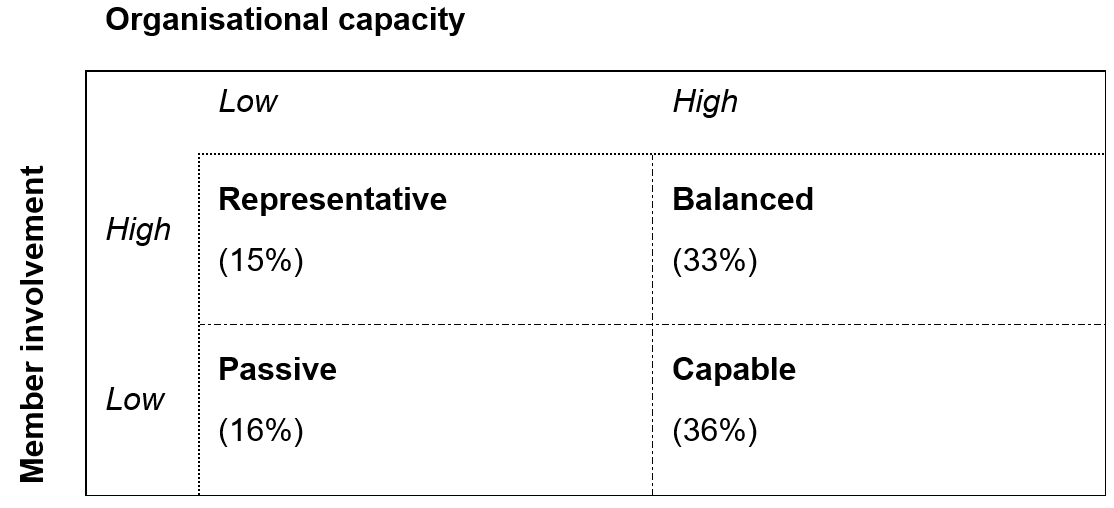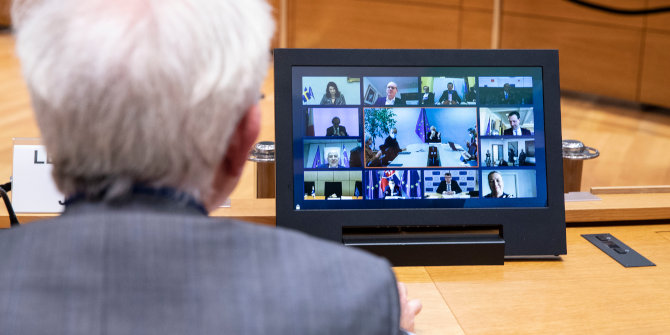 Interest groups can potentially help alleviate the EU’s democratic deficit by acting as a ‘transmission belt’ between citizens and EU policymakers. However, as Adrià Albareda demonstrates, many of the interest groups active at the EU level lack the organisational capacity and member involvement to perform this function in practice.
Interest groups can potentially help alleviate the EU’s democratic deficit by acting as a ‘transmission belt’ between citizens and EU policymakers. However, as Adrià Albareda demonstrates, many of the interest groups active at the EU level lack the organisational capacity and member involvement to perform this function in practice.
The European Union has a long standing democratic deficit problem due to the distance between the decision-making centre and citizens. One of the measures that was put into place to (partially) solve this issue was to foster interest group participation in policymaking. An important assumption in promoting participatory democracy as a tool to improve the quality of the governance system is that interest groups are organisations that connect the demands of their constituency with policymakers. As such, groups are supposed to work as transmission belts that contribute input and output legitimacy to the EU governance system.
For instance, when developing new legislation on chemicals, EU officials are likely to meet with groups representing the industry, but also with environmental groups that protect more socially-diffused interests. In both cases, officials will seek information that is representative of the constituencies of these groups. At the same time, and due to their limited time and resources, public officials want to get policy input in a professional and efficient manner. However, in a recent study, I show that only one out of three groups mobilised at the EU level are organisationally prepared to be representative and efficient, and thus function as true transmission belts.
To examine the ability of groups to function as transmission belts, I unpack how groups are internally organised. Organisational attributes are related to either involving members or having organisational capacity to efficiently and professionally provide policy input. More specifically, when looking at member involvement and thus assess the representative potential of groups, I focus on (1) the interaction between members and the group, (2) the decision-making powers of members, and (3) the structures set to reach out local constituencies. Yet, to function as a transmission belt, groups also need organisational capacity to efficiently provide policy input to policymakers in need of expertise and timely information. In that regard, I have examined (1) whether the group can efficiently respond to policymakers’ demands, (2) the extent to which they are able to speak with a single voice, and (3) their capacity to generate policy expertise.
I unpacked how groups are internally organised with a large-n database derived from the INTEREURO – Interest Group Survey. More specifically, I conducted a hierarchical cluster analysis among 268 interest groups mobilised at the EU level. My findings indicate that groups are organised in four different ways depending on their investment in member involvement and/or organisational capacity (see the table below). Around one third of the groups are organisationally prepared to balance both organisational dimensions and function as transmission belts (these groups are labelled as ‘Balanced’). That is, only a minority of interest groups are organisationally prepared to account as surrogates for the democratic deficit of the EU and efficiently contribute to policymaking.
Table: Organisational capacity and member involvement of interest groups active at the EU level
Note: The table shows the percentage of interest groups active at the EU level which fit into four categories of member involvement/organisational capacity. Those groups that have high member involvement and high organisational capacity are placed in the ‘Balanced’ group and are judged to be prepared to function as effective ‘transmission belts’ for interests. As the table indicates, only 33% of the interest groups assessed fit into this category. For more information, see the author’s accompanying study.
Importantly, balanced groups are able to overcome the organisational tensions associated with combining member involvement and organisational capacity. On the one hand, fostering member involvement may lead to the inclusion of different voices present in the organisation and strengthen its representative character, but it is also linked to cumbersome consultation processes that hamper the capacity of interest groups to efficiently respond to policy demands.
On the other hand, professionalised organisations tend to be more addressable as they can speak with one single voice in an efficient way. This may represent an advantage when seeking access to policymakers pressured by time and resources, but it also can damage the representativeness of the organisation and its capacity to provide input legitimacy to policymakers. That is, when the leadership of the group becomes highly autonomous and powerful, it might neglect the preferences and positions of their membership-base. However, the results show that the tensions between member involvement and organisational capacity are not insurmountable, and some groups organise themselves in a way that facilitates the collection of member preferences and the efficient provision of policy input to policymakers.
In addition, 50% of the groups prioritise either member involvement or organisational capacity. Hence, despite the rhetoric of the EU and its preference for interest groups that relay citizens’ demands to policymakers, there is significant variation in how groups are internally organised, which results in unequal capacities to function as a transmission belt. More specifically, 36% of groups invest in organisational capacity (labelled as ‘Capable’ in the table), but do not pay much attention to involving members. In contrast 15% of the groups have the structures to be representative of their constituency, but do not have organisational capacity (these have been labelled as ‘Representative’).
Consequently, capable groups can mostly contribute with output legitimacy, whereas representative ones are better organised to provide policymakers with input legitimacy. Finally, around 15% of the groups do not invest in any of the organisational dimensions, and thus have been labelled as ‘Passive’. These are under-developed groups which could be considered as loose networks that invest few resources to engage with their own members or have organisational capacity.
An additional important finding is that, independently of whether a group is formed by businesses or citizens, they have the same ability to set complex organisational structures that facilitate the transmissive function. This finding underlines the importance of going beyond the business-citizen group distinction and unpacking how they are internally organised to accurately assess their potential contribution to governance systems.
By doing so, we will be able to provide a more precise picture of our systems of interest representation and the extent to which they are biased in terms of their transmissive capacity. As regards the EU, if the authorities intend to address the long-standing democratic deficit issue, promoting groups that operate as transmission belts could improve the quality of the EU governance system and improve both input and output legitimacy.
Please read our comments policy before commenting.
Note: This article gives the views of the author, not the position of EUROPP – European Politics and Policy or the London School of Economics. Featured image credit: CC-BY-4.0: © European Union 20XY – Source: EP
_________________________________
 Adrià Albareda – Leiden University
Adrià Albareda – Leiden University
Adrià Albareda is a PhD Candidate in the Institute of Public Administration at Leiden University.





